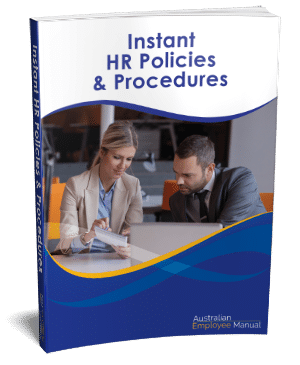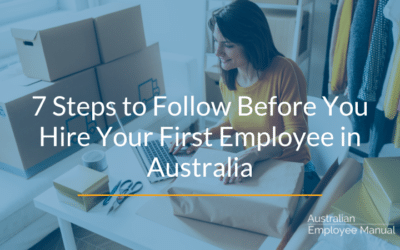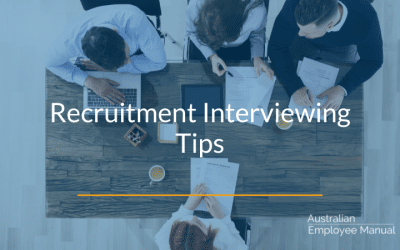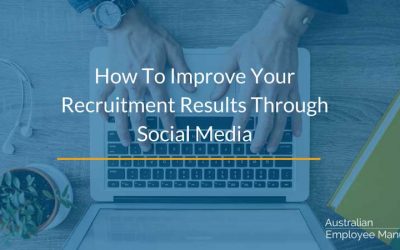You have a vacant position in your small business. How do you go about letting people know you have a vacancy?
Advertising can be separated into free and paid options. In most situations, you may choose to use a mixture of both to attract the right candidates to your role.
Where to list your Job Vacancy (Summary)
Free Places to List Your Job Vacancy
- List the Vacancy on Your Website
- Social Media
- Put A Sign in Your Store
- Put an Ad in Your Newsletter
- Ask Your Employees
- Check Your Applications on File
- School/Uni Career Counsellors
- Uni/TAFE Heads of School
- Email Your Colleagues
- Professional Association/Networking Group
- Disability Job Agencies
Paid Places to List Your Job Vacancy
- Run an Ad Online
- LinkedIn Jobs Board
- Newspaper or Magazine Ads (Local, State or National)
- Contact A Recruitment Agency
Free Job Vacancy Advertising Options
List the Vacancy on Your Website
You control your digital real estate, so list current vacancies on your website as a separate Careers page under your About Us page.
Social Media
List your vacancy on your Facebook, Instagram or Snapchat page.
Signs in Your Store
If you have a retail store or are in the hospitality industry, then placing an ad in your store is a great way to attract casuals and less experienced local staff.
The next time you are in KFC or McDonalds, have a look at their notice boards to see how the bigger players do this.
Your Newsletter
If you do regular mail-outs to your clients, include an ad in your newsletter. Aldi does this well – with the back page of brochures often including an ad for employees.
Ask Your Employees
Asking your existing team members can be a very effective recruitment strategy, particularly if you offer them a “spotter’s fee” for any candidate that gets employed and is retained after their probation. Spotters fees help to get more “buy-in” from your employees to make sure the person they recommend is a great match for your company.
Check Your Applications on File
Many people submit applications “on spec”. Go through the resumes you have on file to see if they are still interested in being considered for the role.
School/Uni Career Counsellors
If you are looking for a school or uni student, contact the school or uni career counsellors to publicise your vacancy. This is a great way to attract student casuals as well as people who may be looking for a traineeship.
Uni/TAFE Heads of School
If you are looking to hire soon to be uni graduates, then contact the Head of School of universities/TAFE’s offering qualifications relevant to your vacancy. Often, they will only approach their top students with your vacancy.
Email Your Colleagues
Often your colleagues know of candidates looking to change jobs or relocate to a new location. Share your vacancy with your colleagues.
Professional Association/Networking Group
If you are a member of a professional association such as a Chamber of Commerce or networking group, share your vacancy with other members in case they can refer candidates to your vacancy.
Disability Job Agencies
People with disabilities often are not considered when looking to fill a vacancy. Directly approaching job agencies that specialise in working with people with disabilities means that you can attract skilled candidates that are often overlooked, as well as get assistance with reasonable adjustments if required. You may also be able to access additional funding for your role.
Paid Job Vacancy Advertising Options
Online Ads
Online ads are a relatively cheap method of advertising – seek.com.au and careerone.com.au are the main online job boards in Australia.
Depending on the skill level of the role you want to fill, you could also explore advertising on Gumtree. Gumtree is best for trade, unskilled and entry-level type roles. http://www.gumtreeforbusiness.com.au/jobs/
Online ads are a fast form of advertising – you can have your ad up that same day and get applications coming in.
The bulk of applications hit you within 24 hours – that said, try and lodge your ad late on a Thursday or a Friday as most job seekers already employed will look over a weekend.
The downside of online advertising is that often you are bombarded with applications of varying quality – some great and many that are not even close to what you were looking for.
LinkedIn is a brilliant way to find skilled employees through their paid jobs board. Not only will your ad appear on the board, but it will also be mailed to people on LinkedIn who are looking for work, who have the best skill match to your vacancy.
https://business.linkedin.com/en-au/talent-solutions/post-jobs#
https://www.linkedin.com/help/linkedin/answer/166/posting-a-job-on-linkedin?lang=en
Newspaper Ads
Traditional newspaper ads are quite an expensive form of advertising and are very slow. Choose your paper carefully to match the location and type of applicant you are looking for.
If your job is unskilled, then consider advertising in your local paper to attract people near your workplace. If you are looking to fill a senior role, then consider the Courier Mail, Financial Review or the Australian.
Recruitment Agency
Recruitment agencies are very expensive but can often find hidden applicants (applicants not actively looking to change jobs). In a candidate-poor market, it pays to list with an agency or two as well as following your processes.
To get the best out of recruitment agents:
- Check the fine print. Agency fees vary, and rules for payment differ. Make sure you know how much and when it is paid
- Check for a refund clause. If the person doesn’t work out in the first month, usually you get a free replacement (which is only good if there are a lot of candidates on their books)
- Give them a detailed brief about you and your company. The more they know, the better the match.
Remember, wherever you advertise your job vacancy, ensure that your words are compelling as well as legally correct. There are no second chances for




